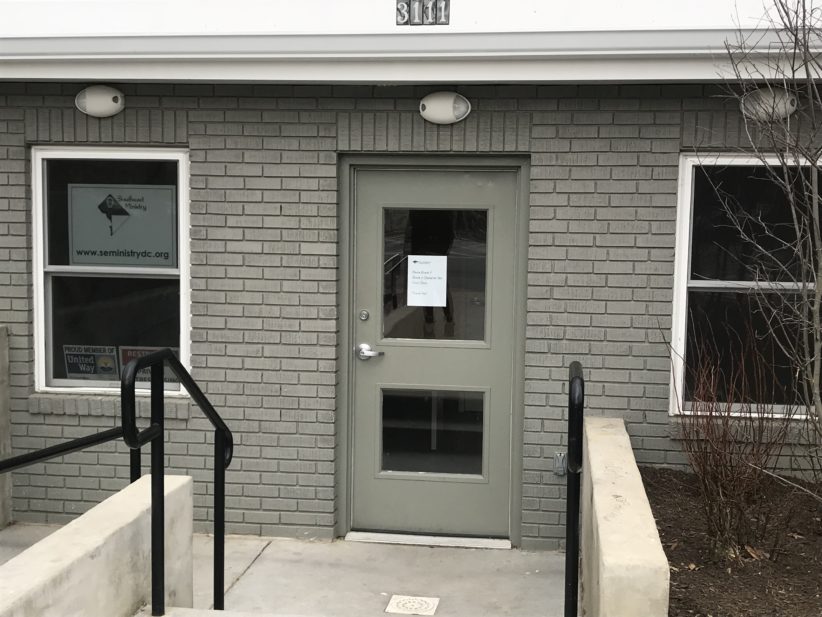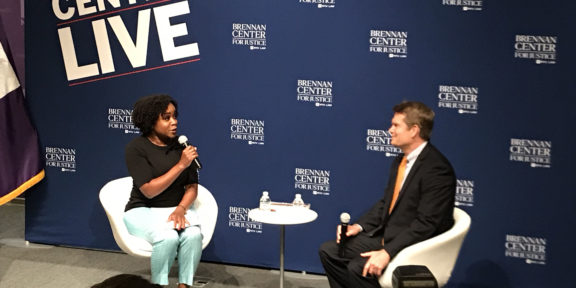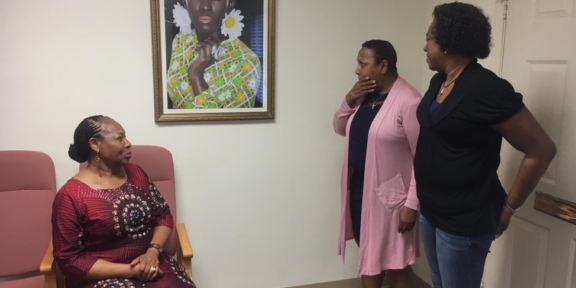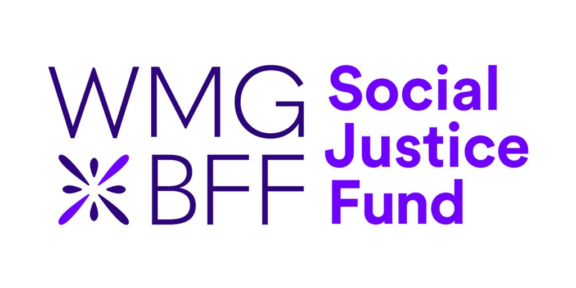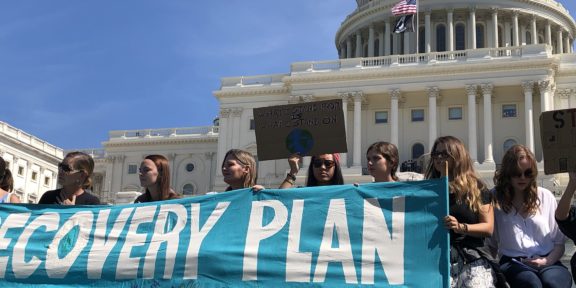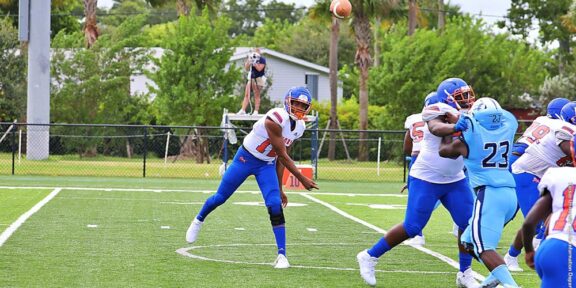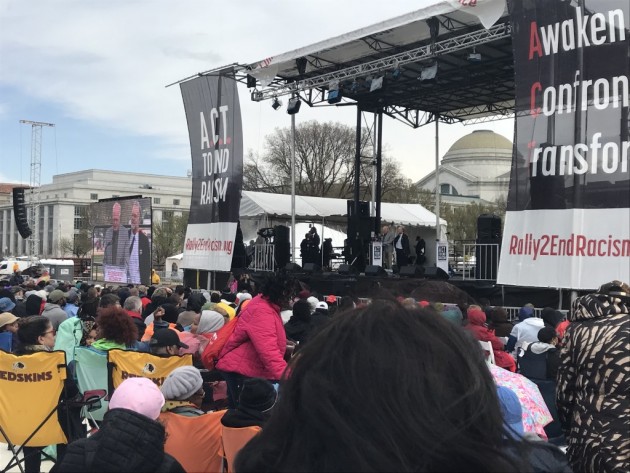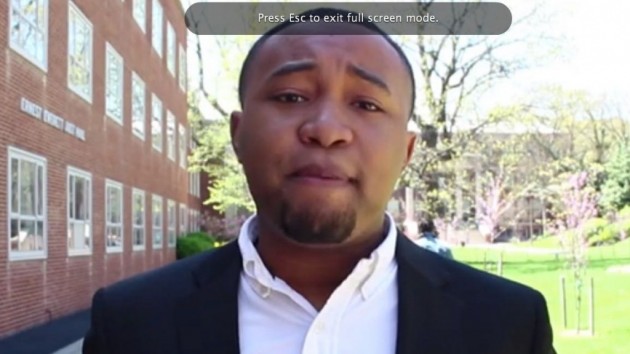By Arthur Cribbs, Howard University News Service
‘Everyone is always welcome.’ For students and staff alike, this phrase rings throughout Southeast Ministry.
Located in the Congress Heights community in Ward 8, the nonprofit organization Southeast Ministry has provided educational services to adults for nearly 30 years. Founded in 1990 by the late Wanda McNeil and the late Roger Truehart, this organization aims to prepare adults for the General Educational Development (GED) test and for employment opportunities.
Classes at Southeast Ministry are free of charge, running every Monday to Thursday from 9 a.m. until noon. With classes of about a dozen students ranging in age and education levels, Southeast Ministry provides services in math, language arts, science, and history.
Whether a person is looking to earn their high school diploma or seeking further training in a job, Southeast Ministry keeps its door open for people interested in their services.
One such individual is Adonis Allen, who finds himself coming back to Southeast Ministry, months after receiving his GED.
A native of Washington, D.C., Allen dropped out of Anacostia High School following the birth of his child. Instead of completing his education, he sought jobs in construction and in the restaurant business to make a living. During this time, Allen spent time living back and forth between his father’s home in Washington and his mother’s home in Waldorf, Maryland.
After years of work, he realized that his lack of a high school diploma would limit him significantly in the job field. “Jobs kept asking me for documentation from my education, so I started going to Southeast Ministries when I was 21,” said Allen. Allen briefly took classes there before returning to Waldorf for work.
Allen returned to Washington, but as an older individual, struggled to have someone take him into their home. He lived in a homeless shelter and returned to Southeast Ministry with the intention of earning his high school diploma, which he accomplished within months.
Although he has accomplished his initial goal of a high school diploma, Allen returns to Southeast Ministry for assistance in job resources and finding employment. Additionally, the relationships that he has formed has Allen coming back. “The people, the personalities, the warmth, and the love bring me back. They are always welcoming me,” he said.
One such person that Allen constantly refers to is the Director of Operations for Southeast Ministry, Evita Leonard.
In addition to handling administrative work, such as information revolving around liability laws and the budget for this organization, Leonard also teaches language arts classes.
Prior to Southeast Ministries, Leonard worked with the nonprofit organization, Covenant House, where she provided services to runaway youth. After leaving work to raise her children, Leonard began contract work with Southeast Ministry. She noted that the adults she works with at Southeast Ministry may be the same people who did not get on the right track at Covenant House years earlier.
Leonard also mentioned that this adult population does not always receive recognition or help from other programs.
“People are less sympathetic to adults because they say that they already had their chance. I have always wanted to help that person or that group that had few resources,” she said.
Echoing similar sentiments is testing coordinator and GED instructor, Demetria Savoy. “Southeast Ministry is a place where people who have been turned away from other programs are invited in. We meet them where they are and include them in the larger group.”
Working with Southeast Ministry for three years, Savoy’s most fond memory of the organization came from one of her first students. She recalls working with a person who was both nonverbal and arthritic in her movement, suffered remnants of a stroke. The student had come to class every day before a frustrating slump in her progress. After a year and a half, Savoy decided that a National External Diploma Program (NEDP) would help the student with its individualized approach to a high school diploma.
Last June, the student earned her diploma and despite being nonverbal, she participated in every aspect of her graduation. “It was as if she showed the world that she would not let this handicap hold her back,” Savoy said.
Additionally, working in Southeast Washington, D.C., Southeast Ministry facilitates in improving education rates in Ward 8. According to a 2017 study from DC Economic Strategies, only 15.6 percent of residents in Ward 8 have a bachelor’s degree or higher. This figure is lower than seven of the eight wards in the city. Additionally, nearly 15 percent of Ward 8 residents have less than a high school degree; a figure that Southeast Ministries is continually trying to decrease.
No matter the person’s ability or past, Southeast Ministry’s vision strives to accept everyone into its community. For more information about this organization, you can visit their website at http://seministrydc.org/.

